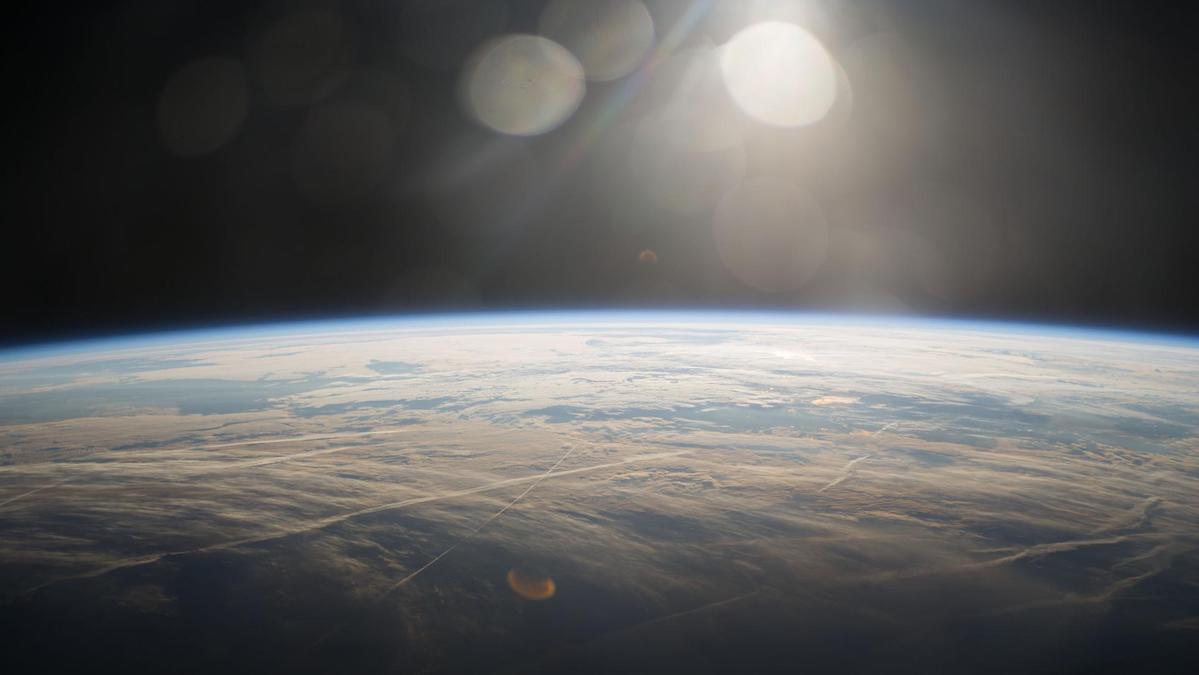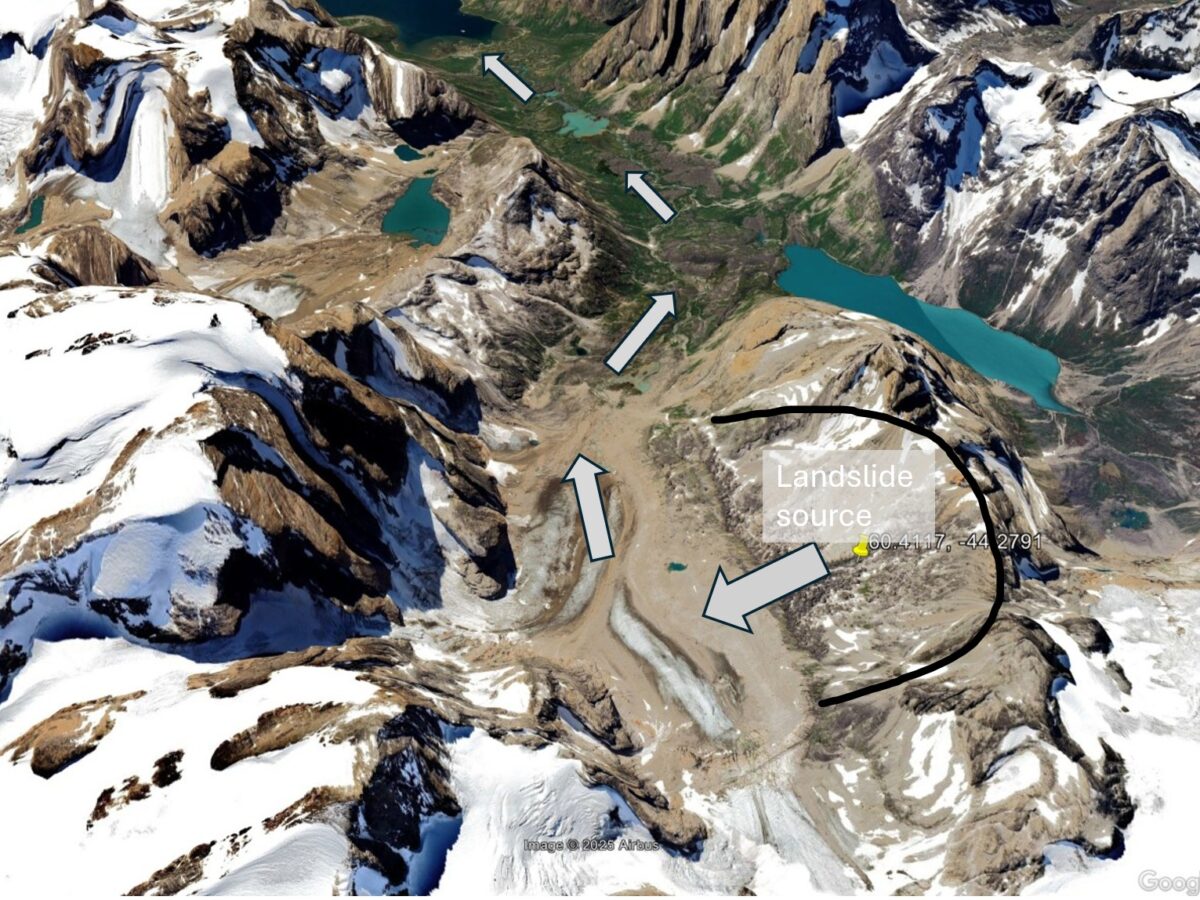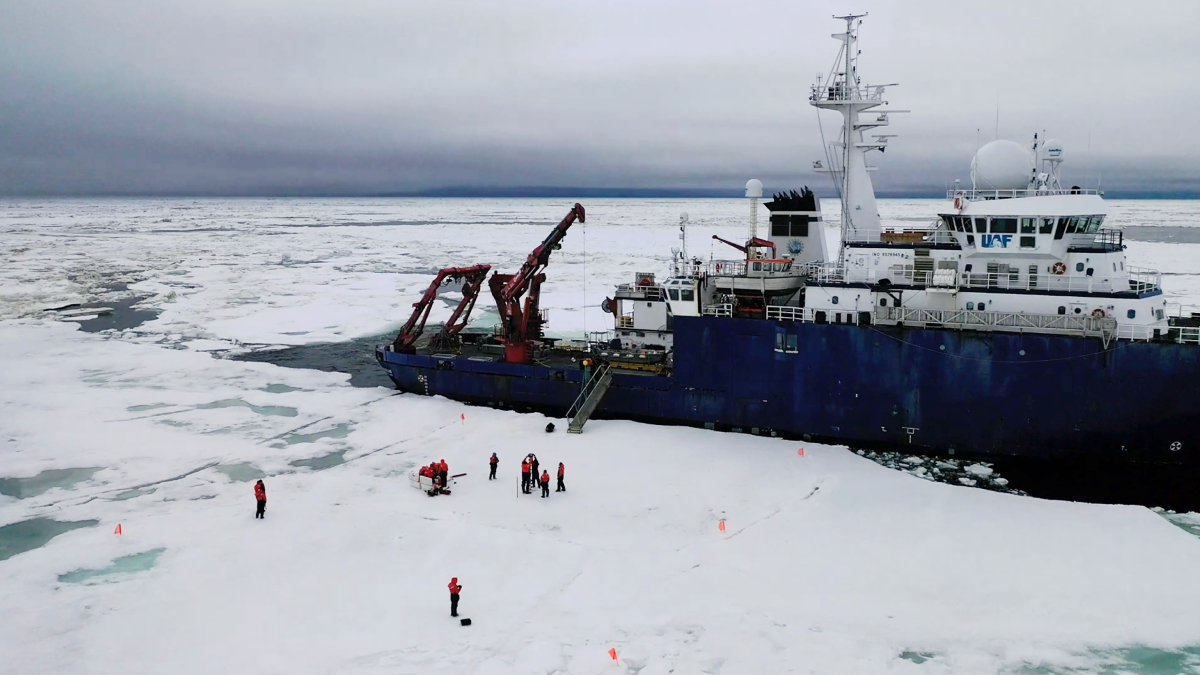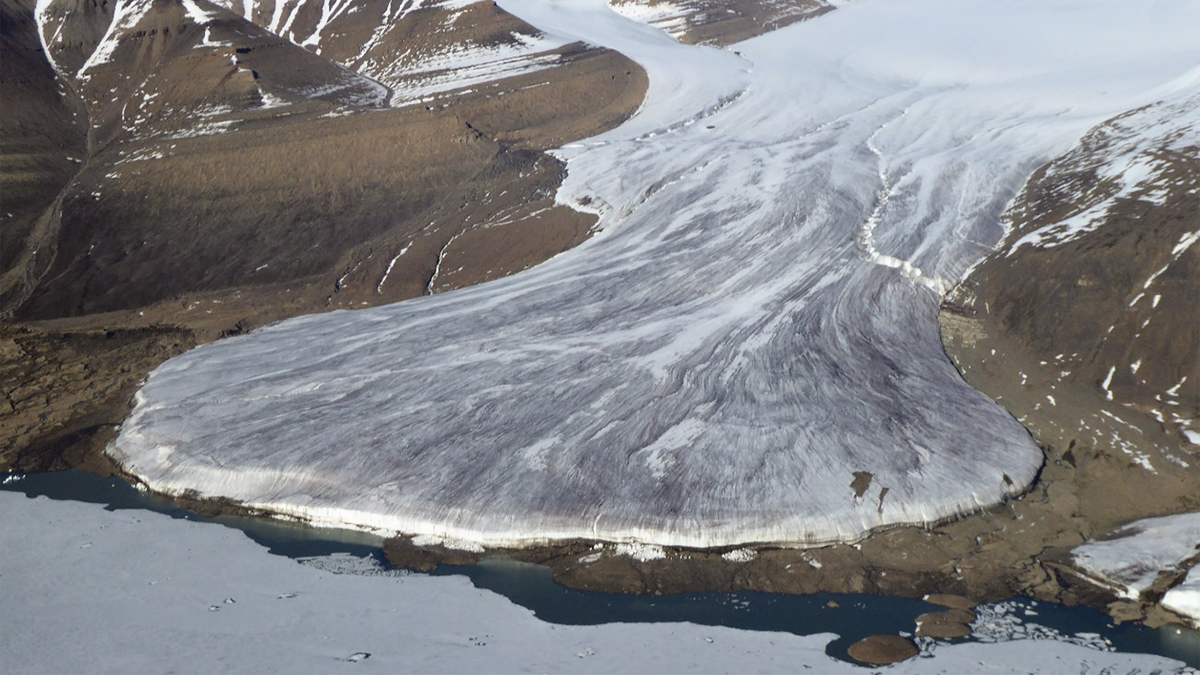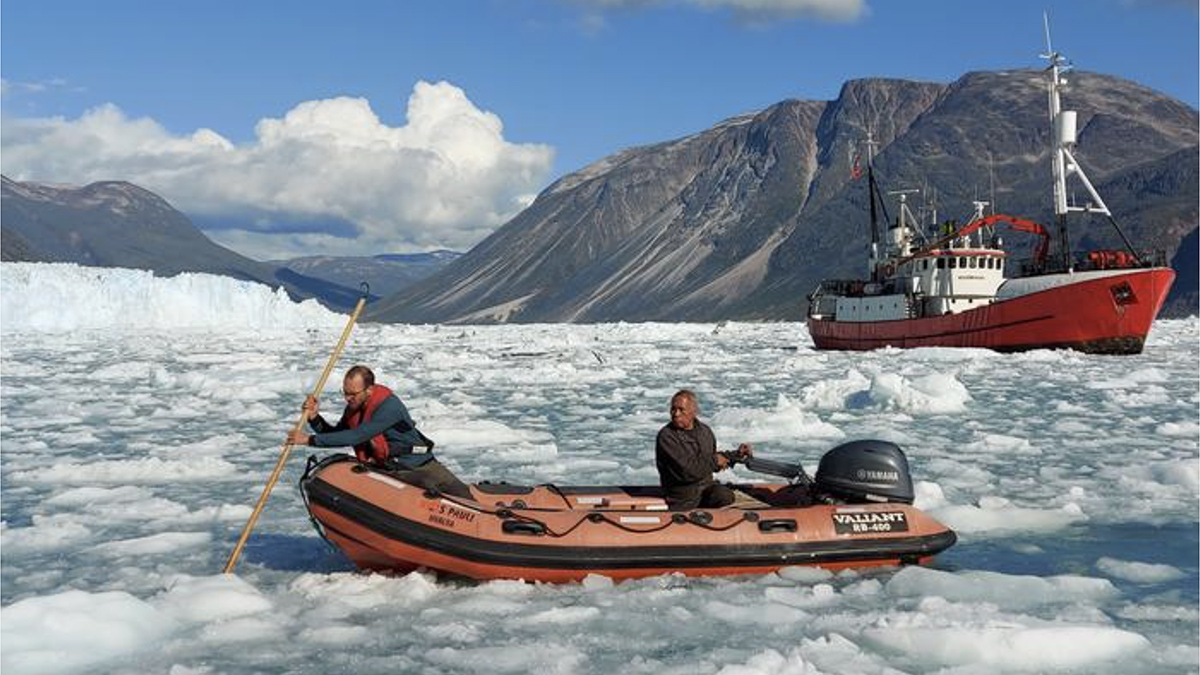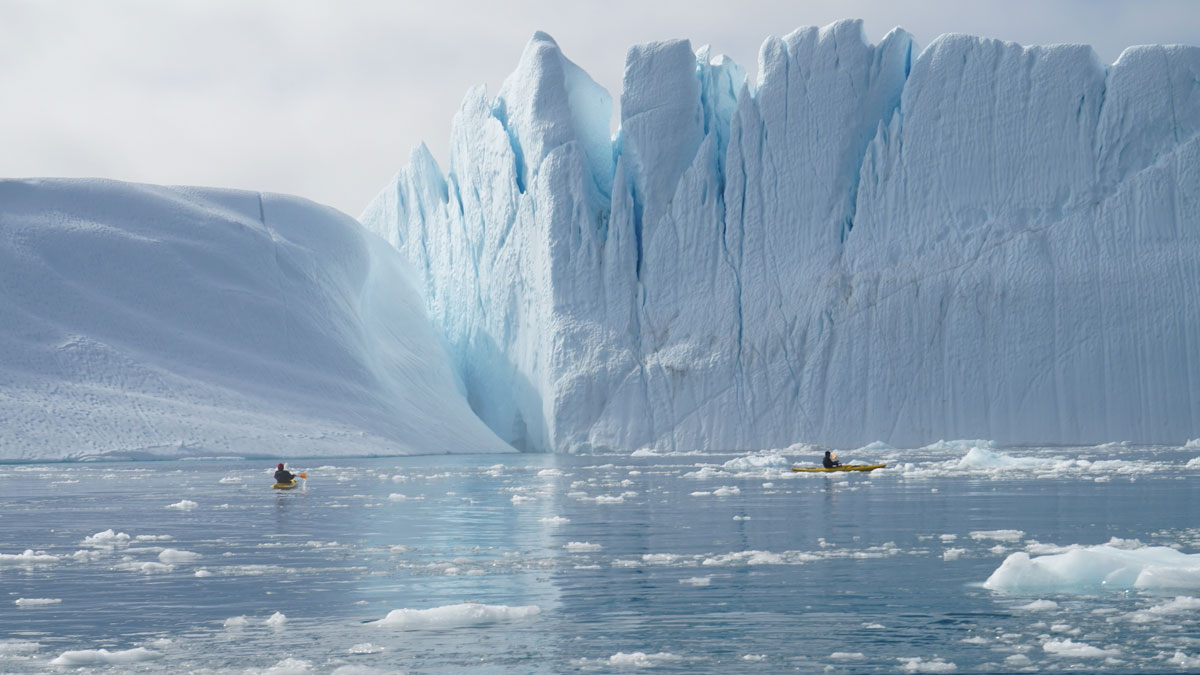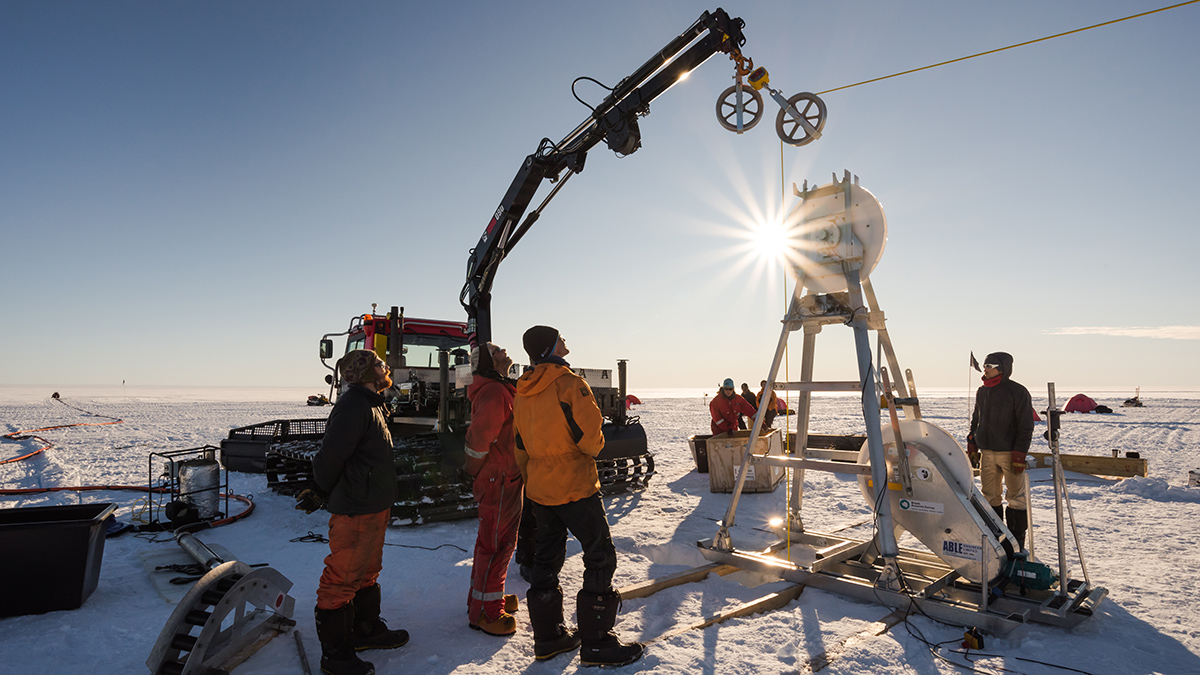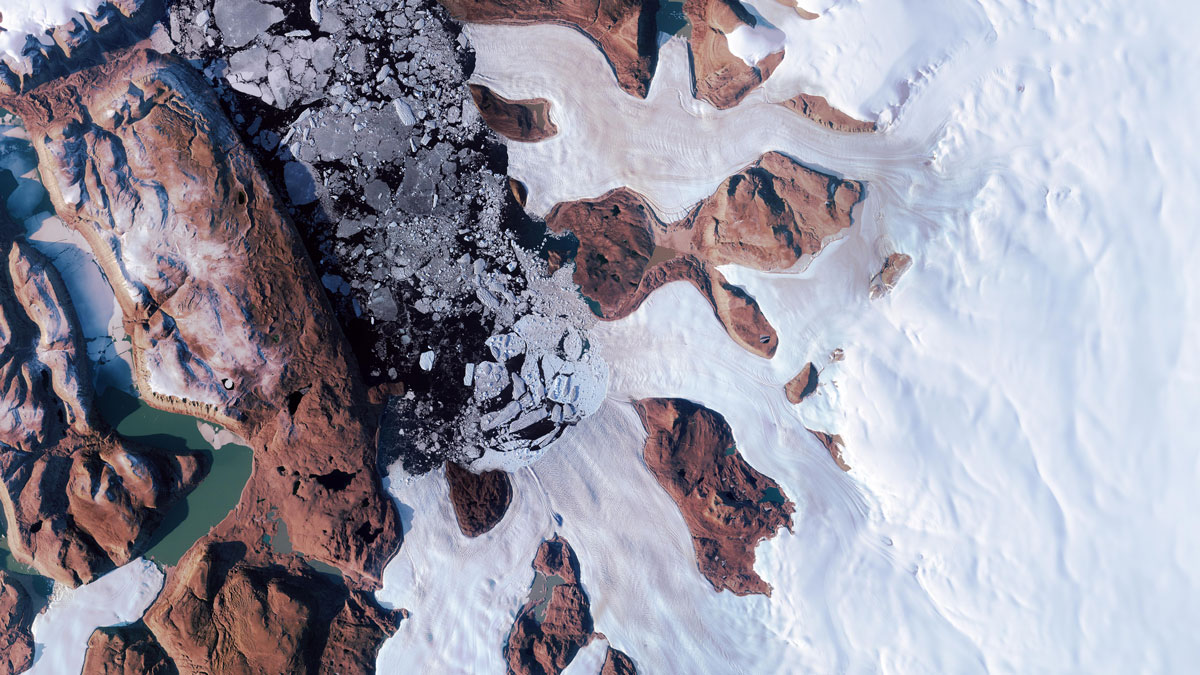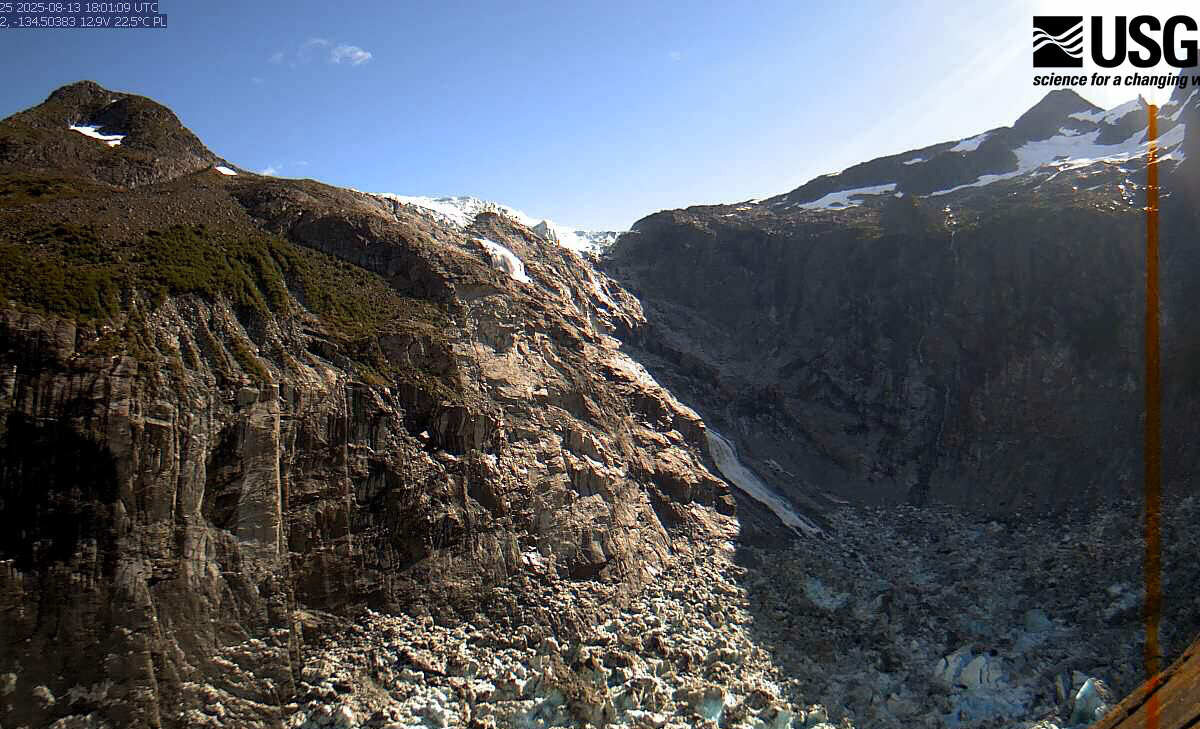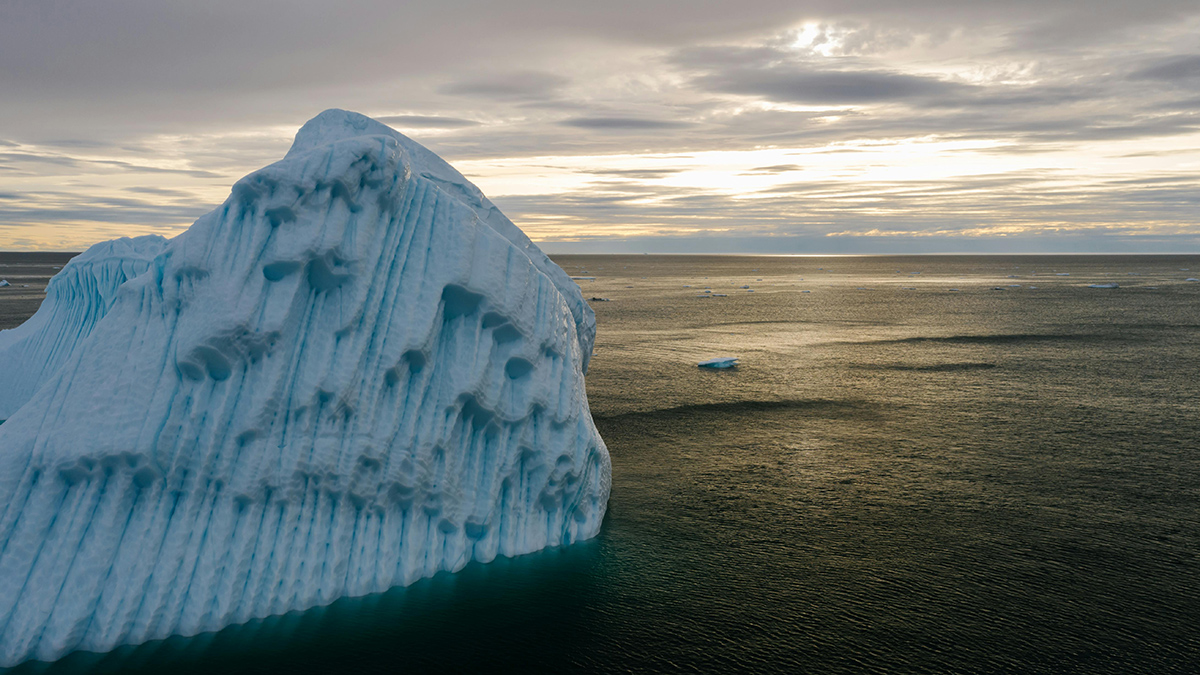A yearly analysis of climate change’s progress and effects shows a “planet on the brink” of ecological breakdown and widespread crisis and suggests that only rapid climate mitigation able to avoid the worst consequences.
glaciers & ice sheets
The giant Tupaasat rock avalanche in South Greenland
A new paper describes a rock avalanche in Greenland about 10,900 years BP that had a volume of over 1 billion cubic metres and that travelled almost 16 kilometres. A fascinating paper (Pedersen et al. 2026) has just been published in the journal Geomorphology that describes a newly-discovered ancient rock avalanche in Greenland. This landslide, […]
Ice Diatoms Glide at Record-Low Temperatures
New observations reveal how microscopic organisms move through polar ice and illustrate how they may have evolved to thrive in extreme environments.
How Glacial Forebulges Shape the Seas and Shake the Earth
A glacial forebulge is a bending-related upheaval of the lithosphere that has a strong effect on the sea level change pattern and on lithospheric stresses, which can induce intraplate earthquakes.
A Fiber-Optic Cable Eavesdrops on a Calving Glacier
A glass thread strung along the bottom of a fjord captured the entire process of calving, from the cracking of ice to the breakup of bergs.
Underwater Glacier-Guarding Walls Could Have Unintended Consequences
Although they would likely impede the warm currents that melt glaciers, such walls would also likely block fish migration and nutrient upwelling, harming marine ecosystems and Greenland fisheries.
Strong Tides Speed Melting of Antarctic Ice Shelves
Ocean currents along the underside of the ice are a major control over melting.
A Burst of Subglacial Water Cracked the Greenland Ice Sheet
When a lake beneath the Greenland Ice Sheet drained, its water burst through the ice sheet’s surface. This surprising event may have affected the movement of a nearby glacier.
Glacial Lake Outburst Causes Record River Crest in Juneau
The Mendenhall River in Juneau, Alaska, reached a record-breaking crest Wednesday morning thanks to a glacial outburst flood (GLOF) from Suicide Basin. At 16.65 feet, the crest exceeded the previous record flood stage of 15.99 feet in 2024.
Arctic Ice Shelf Theory Challenged by Ancient Algae
Chemical signatures of marine organisms reveal that seasonal sea ice, not a massive ice shelf, persisted in the southern Arctic Ocean for 750,000 years.

